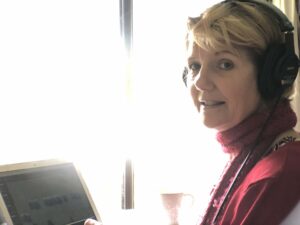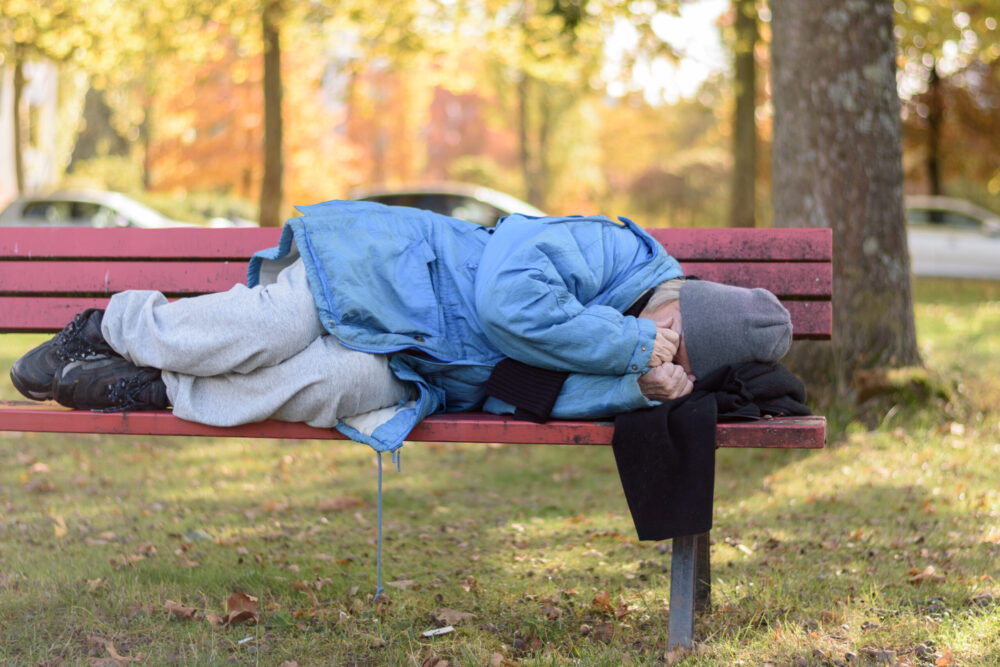Coming Home is a narrative and political podcast about women’s homelessness, made in conjunction with Juno, a women’s homelessness service. It tells the story of three women from Melbourne’s northern suburbs, from their childhoods, through to facing homelessness and eventually finding home. Along the way it explores the history and policies of Australia’s broken housing system, and the politics of women’s lives.
As I’ve previously reported, older women are the fastest growing group of homeless Australians. Therefore, it seemed crucial to get in touch with independent audio producer Kate Lawrence, to ask her a few questions about the pod.
Kate, the first thing I noticed when listening to this podcast is how compelling the personal stories of the three main characters are. What can you tell us about those characters and how you decided to approach their stories?
The three women – Kiara, Mary and Keen – are clients or former clients of Juno, a women’s homelessness service in Melbourne’s northern suburbs. The recruitment process was carefully undertaken to ensure the women understood what was being asked of them. It was always envisaged that they would not be in a housing or domestic violence crisis at the time of the interview, but had passed the crisis stage and able to share and maybe reflect.
It was also important that the women knew they were in charge of their story at every stage: they listened to the edited recordings and the final episodes and could ask for anything to be changed. They could also withdraw their story and their recordings at any point. Support, communication and follow up was ongoing through out.
In terms of approach, one of the goals was for listeners to ‘meet’ and know the women as whole people, not just through their housing crisis, and to share their full stories, to draw us in and along, wanting to keep listening to know how it will all unfold.
For women – and especially older women – homelessness is a national crisis in Australia. But it’s also an issue often ignored in public discourse. What approach have you taken to keep people’s ears and minds stuck to this critical issue?
The whole series is dedicated to showing how and why women become homeless, including older women, and the systemic reasons there is a crisis in Australia.
There are many points throughout the podcast where we highlight why women’s homelessness is often invisible and why we need to broaden our conception of homelessness from rough sleeping, which will always be a much more dangerous option for women, and for women with children, it is often seen as not an option at all.
The structure of the podcast is to follow the course of these three women’s experiences, with narration, commentary and analysis inserted in and around the stories. to explain and highlight the history and systemic issues that are impacting them, particularly in relation to housing, economic disadvantage, gender gaps in employment and family violence.
Some of the things these women discussion – like childhood sexual abuse, family neglect and domestic abuse – are really hard to hear (even for me as a social justice journalist who has reported on these topics for years!). Why did you feel it was important to include these aspects in the pod?
A key purpose of the narrative structure was to allow the women’s character to show through their stories, their hopes and dreams, heart and humour, so that listeners can relate and not ‘othered’, and to better illustrate how culture and systems conspired to create their housing crisis.
So the women’s childhoods’ were important, really important for us to understand and connect to them, and to draw us into their worlds, to know who they are. It was also important for the tellers themselves as one story teller said ‘…I will not be silenced any more…this is my way to put it to rest”. So for them it is about justice for their experience.
That the stories contained childhood sexual assault or domestic violence was the fact of it, and to sanitise their lives by deleting this would be to again silence women.
It is through these and other experiences that we can see and introduce the issues that relate to the way women are treated in our culture and how this disempowers us and leaves women vulnerable to homelessness because the system is profit driven, not human rights driven.

For audio producer Kate Lawrence, story is her “passion and tool of choice to change the world.” Picture: Supplied
There are many compelling moments in your podcast series – both personal stories and opinions and facts. But which incident or interaction sticks in your mind and why?
Moments from the women’s stories that stand out to me are:
Neen as a child, running away at night and lying on top of a child’s grave and asking God to not let her wake up in the morning.
Kiara driving round and round on Sunday afternoons, with three kids in the car waiting for her parent’s visitors to leave, so she didn’t bring shame on the family because she’d left her abusive husband.
Mary deep pain at realising our system just did not care about her and her toddler when she was homeless.
Realisations that stand out for me are:
- The basic unpaid and invisible nature of women’s work, bearing and raising humanity which leads to significant economic disadvantage which of course affects housing options.
- The realisation that of course you are unlikely to see women rough sleeping because it is so dangerous, so women’s homelessness is largely invisible.
- Finally and hugely the understanding that housing is a fundamental human need on Maslow’s hierarchy of needs, more essential than health care and education and a host of other things we spend buckets of money on, that are seriously exacerbated by not tending to the more fundamental need of shelter.
In terms of the future, in a practical sense housing is a totally solvable problem and has been successfully dealt with in Australia in the past, and there are great examples overseas, cities like Vienna. The issue in Australia is a lack of political will and changing that requires all of us to push and pressure and demand action from our political system.
- Please note: The feature image is a stock photo
Ginger Gorman is a fearless and multi award-winning social justice journalist and feminist. Ginger’s bestselling book, Troll Hunting,came out in 2019. Since then, she’s been in demand both nationally and globally as an expert on cyberhate and the real-life harm predator trolling can do. She's also the editor of BroadAgenda and gender editor at HerCanberra. Ginger hosts the popular "Seriously Social" podcast for the Academy of the Social Sciences in Australia. Follow her on Twitter.





